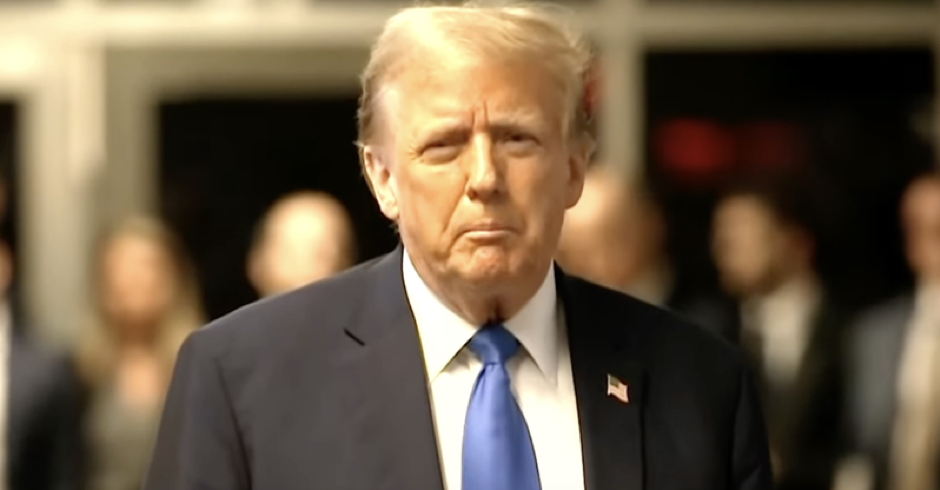The Religious Right Operative Who Helped Write Utah’s Nondiscrimination Law
Was the nondiscrimination/religious freedom law in Utah really the “historic compromise†it’s being touted as, or a Trojan Horse for the Religious Right’s agenda? There now seems to be little doubt with the discovery that one of the law’s authors has spent years working with the country’s most prominent Religious Right leaders and groups to advance right-to-discriminate laws across the country.
After my article last week asserted that the much-hailed Utah LGBTQ rights law was really an attempt by the national Religious Right to gain legitimacy for their agenda to redefine religious liberty as a religious license to legally discriminate, many have begun looking into how the bill actually came into existence.
As Queer Nation recently pointed out, Robin Fretwell Wilson, a law professor at the University of Illinois, has a long history of seeking to develop loopholes in civil rights laws. In 2014, as the proposed RFRA in Arizona was causing national headlines for its provisions allowing both private and government individuals to opt-out of civil rights and public accommodation laws if done so for religious beliefs, Wilson and the Alliance Defending Freedom (ADF) teamed up to send a letter to Arizona Republican Governor Jan Brewer, claiming the law was being “egregiously misrepresented.†ADF (formerly known as the Alliance Defense Fund back when it was working as part of the legal team defending California’s Prop 8, which stripped marriage rights from same-sex couples), was one of the authors of the Arizona bill. Following massive protests and national outcry, that bill was eventually vetoed by Governor Brewer, but less than a month later a nearly identical bill became law in Mississippi and ADF has worked to pass similar legislation in over a dozen states since.
In 2008, Wilson teamed up with the Becket Fund for Religious Liberty—the group behind the Supreme Court’s Hobby Lobby case—to co-edit their book Same-Sex Marriage and Religious Liberty: Emerging Conflicts, where she claimed states must proactively pass “conscience clauses†for religious freedom—the right for individuals, business owners, and government employees to use their religious opinions to legally discriminate against others.[1]
Wilson was more explicit in an op-ed to The New York Times, following the state legislature’s passage of same-sex marriage in 2011. “Without such [individual religious exemptions],†Wilson argues, “groups that hew to their religious beliefs about marriage would be at risk of losing government contracts and benefits and would be subject to lawsuits from private citizens.†She goes on to claim that organizations receiving government funding should never be in danger of losing those tax dollars just because they discriminate against LGBTQ people.
In 2010, Wilson authored a paper in the Northwestern Journal of Law & Social Policy titled Insubstantial Burdens: The Case for Government Employee Exemptions to Same-Sex Marriage Laws, in which she lamented that (at that point) “not a single state has shielded the government employee at the front line of same-sex marriage, such as the marriage registrar who, if she has a religious objection to same-sex marriage, will almost certainly face a test of conscience.†She concludes with what she believes to be a fair scenario: “Same-sex marriage applications comprise a miniscule part of the overall workload in the local marriage registrar’s office. If that office is staffed by three clerks, Faith, Hope, and Charity, and only Faith has a religious objection to assisting with same-sex marriage applications, allowing Faith to step aside when no hardship will result for same-sex couples is costless.†This, of course, ignores the vast implications of allowing a publicly-funded government employee to deny civil rights to citizens—not to mention the real threat of “Hope†and “Charity†following “Faith’s†lead. Wilson also took it a step further in her 2014 paper, Marriage of Necessity: Same-Sex Marriage and Religious Liberty Protections, where she advocates for the Religious Right to focus on inserting its corrupted view of religious freedom into state laws.
Wilson is also famous for co-writing an op-ed in The Washington Post in 2014 with Bradford Wilcox, claiming that if women want to stop being sexually abused, they should just get married. Co-author Bradford Wilcox is currently the head of the Religious Right’s “National Marriage Project.†But until 2012 he was a director at the Witherspoon Institute, where he played an integral role in the creation of the thoroughly-debunked study by Mark Regnerus, which claimed that children of same-sex parents turn out much worse than children of opposite-sex parents. Wilcox not only acted as an advisor on the project, but was a paid consultant.
And speaking specifically about the Utah law she helped write, Wilson went so far as to lay out that “if the religious right does not believe that they are going to have those [religious exemption] protections, it cannot push forward the other rights.â€
Wilson’s true motives in writing Utah’s “compromise†SB296 law are clear.
LGBTQ supporters of the law are arguing that the religious exemptions in SB296 do not undermine the workplace/housing protections for LGBTQ people. But that misses the entire point of the critique of the bill. It didn’t matter what legalese actually went into the law. In fact, it behooved Wilson, the Mormon Church, ADF, and the other Religious Right actors to make the bill appear favorable to LGBTQ people who desperately need workplace and housing protections.
No, the real agenda was to obtain the endorsement of LGBTQ groups. The Religious Freedom Restoration Acts currently being pushed through state legislatures, particularly in the South, are vulnerable to court challenges. But now that the Religious Right has high-profile endorsements of their false framework of religious freedom and LGBTQ rights being opposed to each other, unfortunately, the ability of LGBTQ activists and organizations to oppose RFRAs and other efforts to codify discrimination—all dressed up in the language of “religious freedomâ€â€”has been curtailed.
Â
Eric Ethington is a journalist, activist, and researcher. Originally from Utah, he now works in Boston for a social justice think tank. His writing, advocacy work, and research have been featured on MSNBC, CNN, Fox News, CNBC, the New York Times, The Guardian, and The Public Eye magazine. Follow him on Twitter @EricEthington.
**Cross-posted with permission from Political Research Associates

Enjoy this piece?
… then let us make a small request. The New Civil Rights Movement depends on readers like you to meet our ongoing expenses and continue producing quality progressive journalism. Three Silicon Valley giants consume 70 percent of all online advertising dollars, so we need your help to continue doing what we do.
NCRM is independent. You won’t find mainstream media bias here. From unflinching coverage of religious extremism, to spotlighting efforts to roll back our rights, NCRM continues to speak truth to power. America needs independent voices like NCRM to be sure no one is forgotten.
Every reader contribution, whatever the amount, makes a tremendous difference. Help ensure NCRM remains independent long into the future. Support progressive journalism with a one-time contribution to NCRM, or click here to become a subscriber. Thank you. Click here to donate by check.
 |











